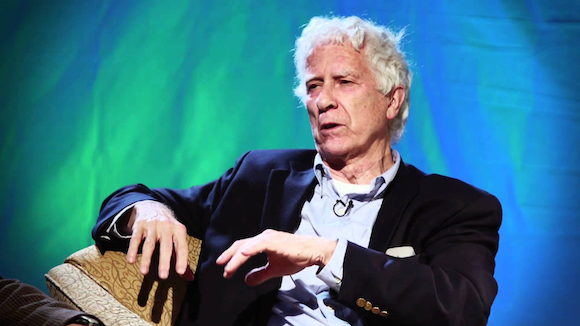Once more, hello Ron!
It’s high time we wrap up this series on the good things that Christian Reformed people who are no longer pure enough to continue in that fellowship hope to take along into their new church homes. Time’s a-wastin’.
My own church and a dozen others have, as of two weeks ago, severed their connection with the denomination, and more are on the way out. Two weeks hence the synodical Brethren—and perhaps a few Sistern—will gather to receive that news, doubtless “covering the matter in prayer” as they did every time they brought the hammer down during their previous three assemblies. Some among the ousted will repeat now, as then, Amos 5:21-23.
Virtues Complicated
You recall that my circle of thirty-some correspondents identified six traits they particularly value about the CRC. I’ve treated four of them so far: a communal, God-centered piety; a holistic sense of God’s redemption and the Christian’s calling; a high esteem for education and the life of the mind; and a robust confessional theology.
The remaining two traits get complicated. My correspondents admire what I call the triple-S complex in Christian Reformed collective character: sacrificial, sober, and stalwart. But they, and many other, also see a negative obverse on that coin: tribalism, insularity, pride.
A similar contradiction attends the final virtue, the CRC’s longstanding deliberative style of governance. That above all has been bulldozed in the synod’s forced march to exclusion so that this treasure’s flip side is a sense of frustration and betrayal.
Sacrificial Character

Perhaps the most frequent theme among my correspondents is a sense of wonder, even awe, over the sacrifices of time and money their forebears made to create a remarkable set of institutions. Churches, of course, but also Christian schools and colleges built by first- or second-generation immigrants of modest means. As finances and educational levels improved, the giving and building continued: psychiatric hospitals and tuberculosis sanitaria; agencies to evangelize at home and abroad, to care for special-needs children, to facilitate adoption and provide for refugees. Substantial housing ministries at home and massive community development projects abroad. In terms of bearing out the gospel Monday through Saturday, Christian Reformed folk have punched way beyond their weight.
For two reasons. First, they created institutions for the long run, not fly-by-night enterprises centered on a single leader’s charisma. Theirs has been collective work built on communal trust and clear accountability. There have been financial scandals, yes, but remarkably few given how open this field is to corruption. Second, generosity has been modeled from generation to generation. Christian Reformed folk long rivaled Mormons for the top rank in American per-capita charitable giving rates. A local Presbyterian pastor once ruefully told me how the CRC’s then-ban on divorce redounded to his benefit. The ousted couples that came to his church did wonders for congregational singing—and budgets. Plus, “they loved theological sermons.”
Tribal Solidarity

The second “S,” sober, came up in our consideration of piety, so let’s proceed to the third, “stalwart.” The thesaurus’s supply of synonyms here is a veritable profile of classic Christian Reformed character: reliable, loyal, faithful, devoted, constant, firm, steadfast, on and on. But I’m haunted by the question of how much all of this has been rooted in a fourth S: solidarity with a strong shadow side of tribalism, negatively taken. “Us” vis á vis—or vs.—“them.” Insiders and outsiders. The old fundraising motto for Calvin College was: “Our school for our people.” It’s taken long, hard work to get beyond that, and the job’s not done.
For me the $64,000 question for those of us leaving the CRC is whether all these virtuous traits can be transplanted to another context without the common memories and group loyalties that have nurtured them to date. If the nurture has been strong enough, the answer is yes. And since recent synodical procedures have been cavalier in ripping old bonds apart, it might be that the old soil has turned toxic for the fruit we want to bear.
Deliberative Governance

Calvin and Yale University philosopher Nicholas Wolterstorff tells of the time that he took a colleague from Princeton Seminary to a session of a CRC synod. The visitor couldn’t believe what he witnessed: “a genuinely theological discussion in which the participants respectfully discussed issues on which they disagreed, without any pressure to rush to a conclusion.” It was so different from proceedings in his own denomination, the visitor said, where everything was pre-set and political.

Since COVID, CRC synods have declined to that level too, and a number of my correspondents pointed out the fact with remorse, even indignation. Accusing the progressives of being woke, the so-called traditionalists have undertaken their own imitation of “the world,” says one observer—that is, the world of Donald Trump with his disregard for the rule of law, precedents, and due procedure. “Rules for them are only the means to an end, the end being power and control.” And—as the synod of 2024 demonstrated by inventing and applying the category of “limited suspension” found nowhere in the church order—new measures can be jerry-rigged to reach an outcome designed in advance without any genuine conversation or theological deliberation in the process.
In fact, bad faith marked the denomination’s consideration of same-sex relationships from the start, mourns another correspondent. Membership on the committee appointed to study the issue was limited to those in agreement with a policy established in 1973, irrespective of a subsequent half century of scientific research and abundant personal experience. Relevant scholars at the university over which the CRC claims pride of “ownership” were entirely bypassed for consultation where traditionally that was their role.
Ignoring the Confessions
The bad faith includes theology and not just process, he continues. Belgic Confession Article 2 says that “God speaks to us in two ways,” in Scripture and creation. “Use them both. When the sources seem irreconcilable, be honest about it; don’t just dig in to defend preconceived notions with predetermined outcomes.” The synod’s Human Sexuality Report committed just that error, conducting an “exceedingly narrow survey of the current knowledge” on the subject and so necessarily rendering a dishonest “evaluation of the issues” which therefore could not provide “the definitive answer to a deeply complicated question.” That is, the Belgic Confession was violated in the name of confessional orthodoxy.
All in all, then, “thanks to a deeply flawed report being equated with scripture, the creeds, and the forms of unity, thoughtfulness and honesty have given way to the fragile certainties of the loudest voices. The Spirit’s still small voice has been drowned out by human noise.”
Such is the state of the CRC, Ron. But let’s not leave the matter on that doleful note.

The best single lines among all the input I received belong to a small-town Baptist boy who learned Reformed ways at [then] Calvin College and became a loyal member and insightful leader in the CRC. A telling episode from college days: “I will never forget meeting kids from the dairy farms of McBain who read and argued philosophy on their lunch breaks while out baling hay.” That quality and the others reviewed in this series, he continues, helped equip the CRC to play “a unique role in American Protestant Christianity, influencing others far beyond its formal reach.”
My personal takeaway image: the CRC has been “a theologically literate, biblically serious, and intellectually adept archipelago of the faith in a sea of populism and intellectual impatience. American Christianity loses something precious with the CRC’s demise.”
Our tour is finished. Time to move on.
Fence photo by Jake Nackos on Unsplash


15 Responses
Very well summarized, Jim. The absence of a response from every regional classis puzzles me. Where is the formal protest? When the process itself is admittedly flawed, should not the verdict be thrown out or ignored until corrected? Such a response would not be anarchy but rather a reaction to it. Synod manipulatively over-reached. Mistrial. Period!
This is all beyond sad. I would guess that, if you took a poll at most churches, they would not have a clear idea of what happened and would express regret over the consequences and then move the conversation on.
Dear Jim,
Thank you for this honest reckoning, and this generous remembrance of a tradition that has shaped us so profoundly.
Thank you for honoring the sacrifices of our parents and grandparents, our teachers and pastors, our farmers and philosophers. Thank you for affirming that something beautiful really was built here. We did not imagine it.
I share your concern for the denomination, Jim. And I share your prayerful hope for those congregations who have stepped away. May they flourish. May they carry forward what was good and be healed of what was not.
Thank you again, friend. You’ve walked this difficult road with wisdom and grace, and I’m grateful to be among those listening in.
PS, Come visit. I have more questions.
Masterfully done and mightily sad. I’m with you.
Thanks again. You put it so well. I’m just sad and more.
I do hope and pray that we woke folk can eventually find a common landing place without tight denominational borders, but with stronger bounds to reclaim the missional and social values and somehow rescue or renew Calvin U’s vision and purpose… Thank you, Jim
An insightful and eloquent overview of where we are, suffused with love for the denomination and tradition that shaped so many of us and with sadness — and anger — over how it has been subverted from within. For denominations as for individuals, our virtues seem often to beome our vices.
As so many congregations decide they must leave the CRC in order to remain faithful to its historic principles, let us remember all those who remain members of congregations that will remain in the smaller and less tolerant denomination. Some cannot affirm gay marriage but respect those who do and want to remain in fruitful conversation. Others, though horrified by both Synod’s reframing of the confessions and by the determination to force everyone into conformity, will not abandon congregations that continue to be vital sources of personal and spiritual nurture. Those who choose to be faithful to a cherished church family (I know so many in just this situation) face challenges different from, perhaps more daunting than, those confronting former CRC members now finding their place, as individuals or as congregations, in another denominational family.
(PS – thanks for the greeting passed along by your nephew-in-law, who concelebrated the Ascension Day Eucharist at St. John’s in Grand Haven yesterday.)
Thank you, Jim! Your thoughtful and engaging analysis will find its way in future denominational history books.
May the past riches of the CRC live on in its departed offspring!
This was so helpful to me Dr Bratt, in understanding how you and the others sharing here over time, have been shaped by your faith through your denomination. And how difficult it is to be let go. It feels like I may have said this before but it bears repeating. I hear a remnant of the goodness of CRC’s heritage, through which God’s Spirit shaped you, going with you. I believe that will shine through you wherever you (all) land next. God’s grace looks well on you.
Jim, I hopped you congregation and the other churches of the Grand Rapids East Classis CRCNA follow the large number of you pastors who have moved their papers to Grand Rapids North Classis of the RCA. You will find fellow followers of the Traditional Dutch Reformed Faith who will welcome you with open arms.
Unlike the CRCNA the RCA includes the Belhar Confression as one of our creeds.
You will find that we are also in the midst of reorganizing our governance structure above the individual congregation by creating larger classies, renaming then “Middle Assemblies” and eliminating the Regional Synods. There is at this time the opportunity for the old Grand Rapids East Classis to become the heart of a new 4th Middle Assembly centered in Southern Michigan.
All I can say is Welcome to your new home if you decide to join us.
Feel free to talk to Linda, she is deeply involved in the RCA reorganization process, having just been the President of the Synod of the Great Lakes.
I am not CRC, though I have considered myself an ally, or CRC-adjacent (thanks, Doug McClintock). I agree that the CRC has been surprisingly and maybe uniquely strong in some things while in other things weak and lacking, such that modesty and a quiet sense of humor was always necessary. I think of the CRC as having been (sometimes rudely) stewards of some very precious things for the rest of us. I can’t discern how that will continue.
I smiled at your “synodical Brethren (and very few Sistern)” comment, and that synod 2025 will take note of our leaving while “covering it with prayer”. Yeah, they will. I was part of that prayer initiative for the last 3 years, which gave me a front row seat to all of synod’s deliberations and activities. I will not miss being a part of that this year, because after last year, I simply could not do it again. But not because I don’t believe my prayers were important, just because it became too hard to observe the pain in the room. Just before synod began last year I knew in my heart that things were not going to go the way I wanted them to – I could see who was in charge. But it was still an honor to be there, bear witness, see the pain and hold those who were suffering in my heart. I felt it was my role to recognize and pray for those who were in pain and some how to share it with them. It was the CRC that taught me to love prayer – and I see that prayer didn’t make your ‘baggage’ list. But I worked for what was CRC Home Missions from 1996-2008, and they taught me how to pray. It was an amazing place of love and concern and prayer for all, and also very beautifully diverse. I’m grateful for that gift they gave me. And I will pray from afar for this next synod, too, as in a lament, and I will again ask that the pain and the suffering that is evident in the room and in the church will be seen and felt by those present, and that it will be held and healed by our loving God.
Brilliant, Jim…………..absolutely brilliant assessment presented with “wisdom and grace”! Are you available for the opening session of Synod? Perhaps a “New Deal”?
Thanks, everyone, for your comments and reflections, both on this post and the two previous on the same subject. I think our collective voices leave a valuable record, as Henry Baron remarks, of our mood and memories at this turning point. May we all indeed–those who have to leave and those who remain in the CRC–cultivate its virtues and try to shed its debilities going forward.
I greatly appreciate your perceptive analyses, Jim! Thank you for your willingness to apply your sober professional expertise to our regrettable denominational developments.